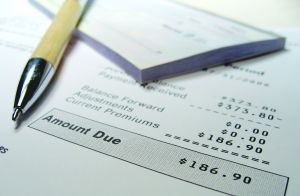 In the State of New Jersey, the amount of real estate tax you must pay is based in part on the municipality’s “assessment” or assigned value of your property. As property values have declined over recent years, some towns have reduced their assessments in order to keep up with the changes in value. They have then raised their assessments to make sure their budgets can continue to grow. The net result is that, even though the assessments have gone down, the taxes still have gone up.
In the State of New Jersey, the amount of real estate tax you must pay is based in part on the municipality’s “assessment” or assigned value of your property. As property values have declined over recent years, some towns have reduced their assessments in order to keep up with the changes in value. They have then raised their assessments to make sure their budgets can continue to grow. The net result is that, even though the assessments have gone down, the taxes still have gone up.
Other municipalities have kept their assessments high, and have then been forced to defend a deluge of tax appeals from property owners and their attorneys. Unfortunately, these towns have relied on various unscrupulous methods to defend otherwise indefensible property tax assessments. One method employed is the use of the “N.U.” or “Non-usable” code. Here’s how it works:
In most cases, the taxpayer will attempt to prove his assessment is too high by offering evidence of comparable sales. The goal, when choosing a comparable sale, is to pick the properties that are most similar to your property, while also confining your search to sales that occurred soon before October 1 of the pre-tax year, or in some cases, within a month or two after October 1. The other requirement that had been imposed upon the taxpayer is that the sales must be “usable.” N.J.A.C. 18:12-1.1 sets forth several categories of sales that may be considered non-usable by the tax assessor. Historically, the designation of non-usable or “NU” meant that the Tax Board or Tax Court did not need to consider the sale reliable in their determination of value of the subject property. The only sales that would be considered would be “arms length sales.” With the surge of “distress sales” including foreclosures and short sales, it is becoming increasingly prevalent that the distress sales are defining the market. Put simply, the price that a buyer is willing to pay will be substantially affected by the abundance of bank sales.
For several years, objections to the use of “non-usable” sales have plagued tax appeal practitioners due to this fact that a large number of otherwise perfect sales data were eliminated, based solely on an administrative code. However, earlier this year, we received some great news when the Tax Court decided the Matter of Greenblatt v. Englewood City. In that matter, the Court concluded that “As it is the Defendant [the municipality] that is putting the issue of the reliability of sales [comparables]… it is the Defendant’s burden to prove that the sales do not reflect market value. Simply saying that a sale was determined by the assessor to be non-usable for purposes of the Director’s sales ratio study does not render the sale non-usable for valuation purposes. One opposing the sale must demonstrate with competent credible evidence that the sale does not reflect true market value.” While we have continued to receive objections from Municipal attorneys who disagree with our use of non-usable sales, we now can state with confidence that the municipality that has the burden of proving that these sales do not accurately reflect value.
 New Jersey Real Estate Attorney Blog
New Jersey Real Estate Attorney Blog

